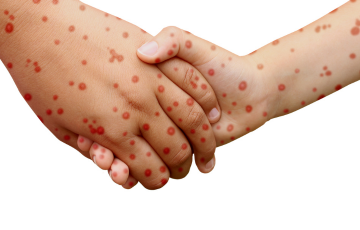AVIAN INFLUENZA (H5N1)
Bird flu is a disease caused by a type of flu virus that mostly affects birds. However, it can sometimes spread to people and other animals. Since 2022, a strong strain of bird flu called H5N1 has been found in many parts of the world, including in wild birds and farm chickens across North America. It has also infected animals like cats, dairy cows, and sea mammals. In rare cases, people have gotten sick too.
Visit the BC Centre for Disease Control’s Avian Influenza page for more information, including:
- What avian influenza is
- Current global and B.C. situation
- Symptoms in humans
- Prevention and protective measures
- Avian influenza in birds, livestock, and pets
- Food safety considerations
VACCINE ELIGIBILITY
A vaccine that protects against avian influenza is available for people at higher risk of exposure. The vaccine, AREPANRIX™ H5N1 , is provided free of charge in B.C. and is administered as two doses, at least three weeks apart.
The vaccine is available to people who are likely to come into repeated contact with the H5N1 virus, including:
- Lab workers who routinely handle samples that likely contain live avian influenza virus or grow (culture) live avian influenza virus
- Veterinary staff who examine dead animals that may be infected
- People working in labs with a large number of infected, dead animals
- People who handle infected animals or clean contaminated areas
It is also available to people who work in close contact with wild birds or in/around waterfowl habitats, such as:
- Wildlife or animal control officers
- Wildlife rehabilitation workers
- Wildlife researchers
- Hunters and trappers
- People doing environmental assessments or wildlife surveys
- Contractors and workers involved in waterborne pathogen research or monitoring
Note: The vaccine is not available for those who are not eligible and cannot be purchased privately in B.C.
THINGS TO CONSIDER
- If you’ve received one dose and remain eligible, a second dose at least three weeks after the first dose is recommended.
- Do not attend a clinic if you are experiencing flu-like symptoms or red eyes with discharge (conjunctivitis).
- Eligible individuals may also qualify for other vaccines (e.g., Hepatitis A/B, HPV) depending on age and risk. All other vaccines should be given at least 6 weeks after the H5N1 vaccine.
- If you receive the H5N1 vaccine, it is still recommended you receive the annual influenza vaccine when the vaccine is available
BOOK AN H5N1 VACCINATION APPOINTMENT
Appointments for the H5N1 vaccine can be booked through the following local public health units. Please note that drop-in appointments are not accepted.
- Resources
-
BCCDC Avian Influenza
BCCDC Avian Influenza Vaccine Client Information Sheet
Visit our environment page, Avian Influenza to learn about the risk of transmission from animals to humans



